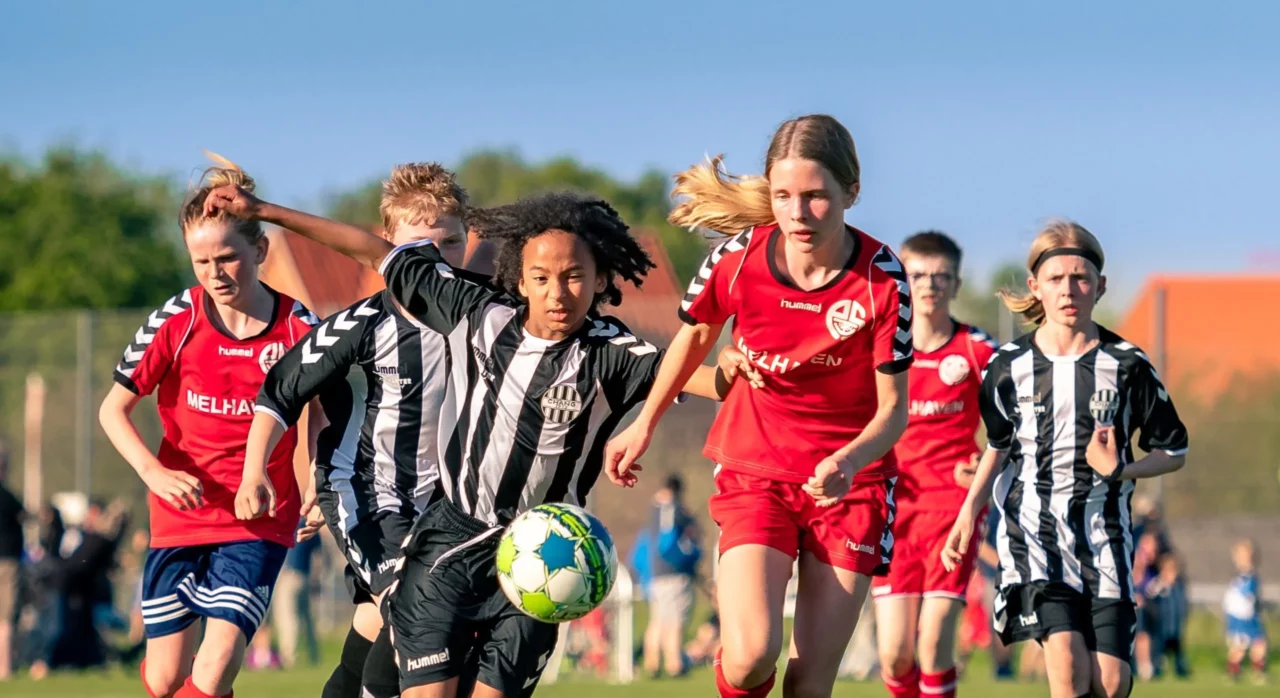The England football team’s Euros win on Sunday sparked discussion of what the future of women’s sport could look like, and how to keep up the momentum.
Ian Wright discussed how unequal access to football at school in the UK has shaped the game, and since Sunday’s win the lack of diversity seen on the pitch has been marked as a point for development in future. Sport is a key area for making an impact with inclusion. The past week has also seen LGBTQ+ protests taking place at the Commonwealth Games as 35/56 nations currently criminalise homosexuality. The Included team shared their thoughts over the past week.
What was your response to the Lionesses’ win?
Louisa Joseph: It is an amazing achievement for Women’s football and Women’s sport more generally. It will inspire girls to see women in football as a career and something they can aspire to when previously it hasn’t been encouraged. My oldest daughter loved football when at primary school but when she got to Year 6 at primary school she was teased and called a “lesbian” because she loved football. She gave it up rather than carrying on doing something she loved. So there’s something about a change in society that this win will help to deliver for the next generation of women football professionals.
Lydia Collins: Like many, I was chuffed! I found out in a crowd of thousands of people on a sunny Cambridge field. This shared joy, leaning into the moment and letting go of everything else to raise a fist in the air, throw back your head, and shout a passionate “YES!” or “THEY DID IT!”, felt magical in the moment.
How have your thoughts developed since?
LJ: I was really disappointed about the lack of diverse representation in the Women’s England team, however. I hope this will change with more being done to support funding for sports facilities and opportunities for local clubs in areas of the country where young people come from a poorer socio-economic background.
LC: Upon reflection, I realise that a big part of what I was feeling was also relief. I feared the public vitriol, the sexist comments, withdrawn support, and insults that could have followed a loss. We’ve seen far too many of these even though the Lionesses won, and I dread to think what would have happened if the result was different. I thought about how I, as a nine year old was part of my hometown’s girl’s football team and found so much joy in the sport. Ageing out of this team, and having no opportunity to play football in PE at school wasn’t something I really realised the impact of until… Well, now. Knowing that in the 1920s, women’s football had such incredible support and was a really exciting time, to then be banned for the next 50 years is saddening. We can’t deny the impact that this is had on the support, investment, and perception of women’s football. We’ve seen many people speak out about how comfortable they feel in a crowd at a women’s game, something which can’t always be said that men’s football matches. Maybe this becomes a historic moment of change, and a catalyst for many more changes to come.
What D&I changes would you like to see in sport?
LC: Equal access to opportunity is crucial. Access to appropriate spaces, safety equipment, and coaches/trainers in sports no matter your gender, sexuality, race, health status, or any other aspect of you as a person will pave the way for more representation in the most professional spaces in sports. Not to mention the physical and mental health benefits of a safe space to practice a sport with other people. Of course, I hope for equal pay for sportspeople. A shift in the dominance of toxic masculinity in the spectatorship and participation in sports. The return of true sportspersonship, displayed by the women’s team; of respect, unbridled enthusiasm, and camaraderie. An appreciation of the opposition, and the work that they put in. In short, more access, and more unity.
How can sport and events such as the Commonwealth Games be used to tackle unequal rights globally?
LC: Sports can bring people together in a shared experience, where we open up about our feelings, and aren’t afraid to display our enthusiasm, disappointment, and joy. It has the potential to connect generations, and bridge geographical gaps, as long as we keep that unity at the heart of how we celebrate, and commiserate. Sports also have a way of communicating bigger messages, about inequality, injustice, and oppression. We see this through Colin Kaepernick, Megan Rapinoe, in the Commonwealth Games protests – all using the far-reaching popularity of sports, to hold people, and systems to account. Some say we should keep politics out of football, but the historic context of women’s participation in football in the UK makes the Lionesses’ win even sweeter – and should act as a further impetus for change.
Getting inclusion right in sport can make a huge difference to health and self-esteem, as well as improve tolerance and understanding between different groups. Sexism, racism, and homophobia remain present across sport from the pitch to the spectators. Achievements like the Lionesses’ win and forums like the Commonwealth Games provide us with an opportunity to change the narrative.
Keep the momentum going though channels such as:
- The Well HQ, an organisation working to close the knowledge and research gap between women’s and men’s sports.
- Engage in the conversation around trans inclusion in grassroots sports, here facilitated by Pride House Birmingham.
- Support organisations working to diversify sports, such as London Otters Rowing Club, Brixton Wings (in collaboration with London Youth Rowing), Trans-Fit, and Women in Football.
- Share the Lionesses’ open letter to the UK Government to provide girls with equal access to football at school.



